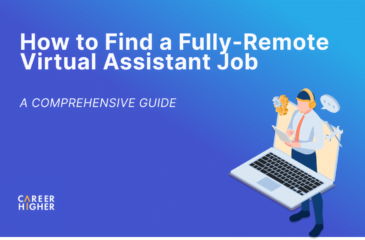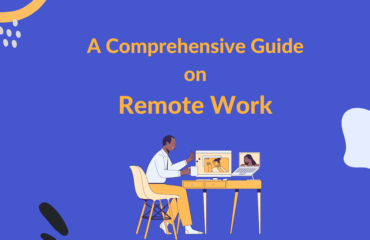Table of Contents
In a highly competitive job market, there is often very little or no scope to make mistakes. A small mistake has a high chance of resulting in a domino effect, affecting our opportunities at large. In this article, we will have a look at 7 job search mistakes to avoid for a result-oriented, highly productive job search process:
1) Lack of a goal-oriented plan
The need for a goal-oriented plan is high when starting the job search process. It is important to know your target jobs, companies, and industries. This will help you follow a path, make timely decisions, and reflect back as and when necessary. Ensure that you have a SMART, goal-oriented plan to help you keep a track of:
- Applications you intend to make
- People you intend to connect with on LinkedIn
- How and when to follow up with recruiters
- How frequently to post relevant content on LinkedIn
Not having a plan may result in chaos and missing out on opportunities due to a lack of awareness and organization. To keep a track of processes, you can use Excel sheets. The data can also be used by you regularly to analyze and make further decisions on the relevant opportunities.
2) Applying for all the jobs you come across
As mentioned earlier, not having a plan can be chaotic and may slow down the process. Having a plan ensures knowing target opportunities. Applying to any job that comes your way will result in wasted resources and may increase your rejection rate, resulting in lower morale and motivation to continue the job search process.
Before starting your job search process, have clarity on the following:
- Targeted job role
- Targeted companies and industry
- Location
- Tenure: Temporary/ Permanent
- Hours: Part-time/ Full-time
This will direct your time, energy, and resources towards the relevant opportunities only and will also increase your chances of getting a job sooner.
3) Not customizing the cover letter and the resume
Another important aspect that candidates miss out on is customizing the documents for the applications. Almost every job posted has a similar procedure to select candidates. The very first is the ATS test. An Applicant Tracking System (ATS) prescreens and scores resumes based on criteria set by the recruiter and only the high-scoring candidates progress to the next stage. According to the best practice, using the keywords highlighted in the job description increases the chances of passing the ATS test. Thus, not customizing the CV and the Cover Letter will reduce the chances of getting the job.
4) Relying only on posted jobs
The job search is not only about finding a job, it is also about how you find it. You can choose the traditional ways of looking for a job by browsing through job search sites like LinkedIn, Indeed, and Monster or you can think out-of-the-box and target jobs that probably don’t even exist for half the candidates. The hidden job market is real, and if approached the right way, there is a high possibility of you getting a job that was not advertised. A good way to keep a check on such jobs is by maintaining professional relationships and networking effectively.
Just like you, the recruiters also have the capacity to think out of the box. They have multiple non-traditional ways of ensuring that they find the right candidate. One of them is checking their social media accounts. Although platforms like Facebook and Twitter may not be as transparent as LinkedIn, a simple Google search in your name may give easy access to your profile to the recruiters. Keeping unprofessional social media accounts may reflect an image that may pose a hindrance to your ongoing job process. You may want to:
- Untag yourself from inappropriate pictures.
- Be thoughtful while commenting/posting publicly.
- Set your accounts to private if you don’t want recruiters to browse through your profile and find something that may impact your application.
- Use Social Media to enhance your personal brand.
6) No follow-up
You are not the only one making an application for a job post. There are a hundred other candidates, if not thousands. Even though a lot of employers are empathetic and kind enough to respond to candidates, there are a lot of others who may not respond.
One of the best ways to get closure on a job application is to follow up with the employer. When you know you are interested in the job, the least you can do is to check with the employer before moving on from the opportunity. While following up, make sure to keep this in mind:
- Prefer emailing over calling
- Use professional language while emailing the recruiter
- Make sure that you don’t sound furious or irritated
- Keep it concise, to-the-point
7) Taking rejections personally
Not all applications you make will have a positive outcome. You are bound to receive rejections, like everyone else. What is important is that you don’t take those rejections personally, so as to slow down your job search process. If you feel overwhelmed by the rejections, it would be best to:
- Take a break and spend time working on your hobbies.
- Seek professional help from your network. This could be from a career strategist, consultant, or veteran you’ve worked with before.
- Re-work your resume and cover letter.
- Revamp your networking strategy.
We may not always be able to learn from the mistakes of others but keeping a check on the best practices may help us reduce our rejection rate, and direct our resources and motivation towards the right opportunities.











